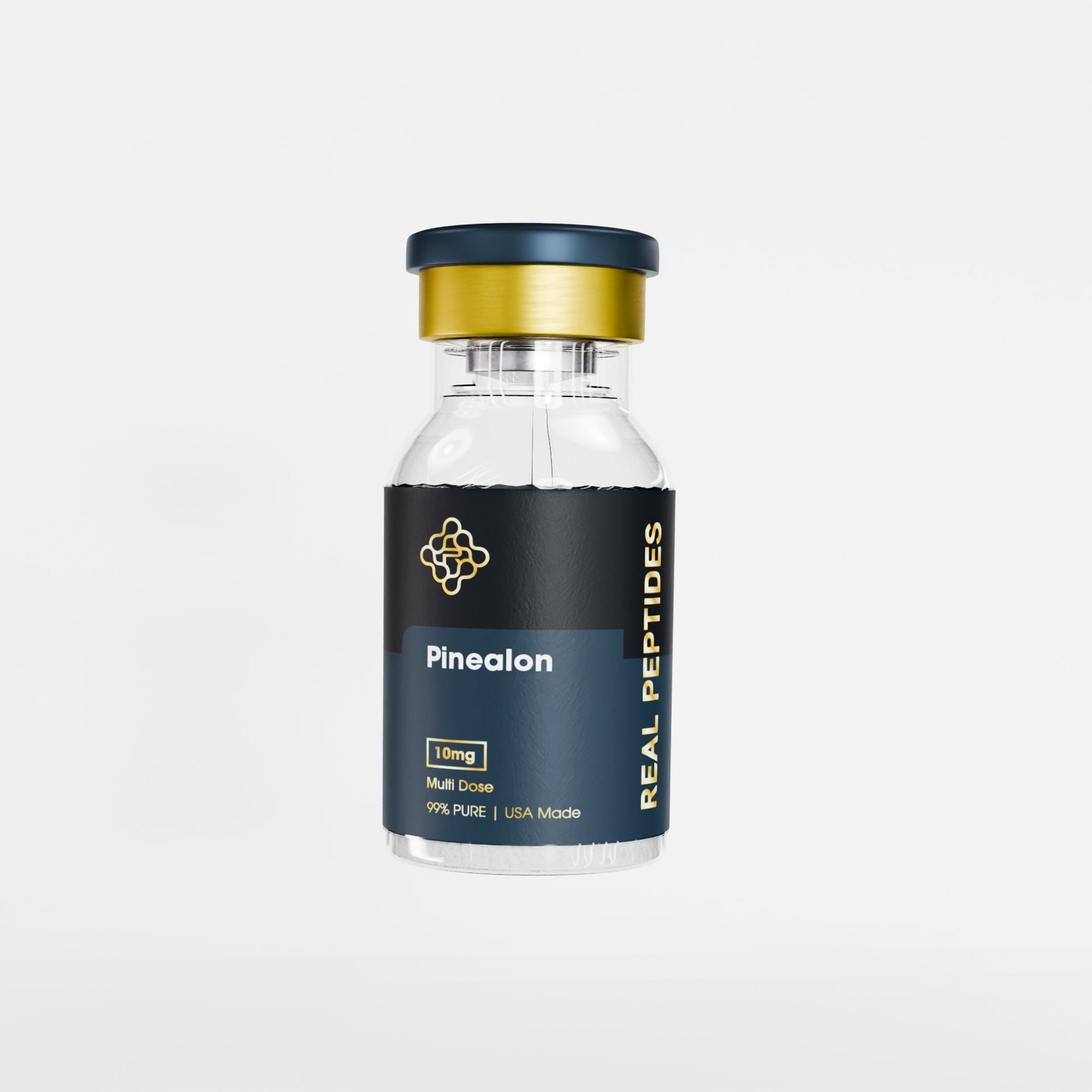
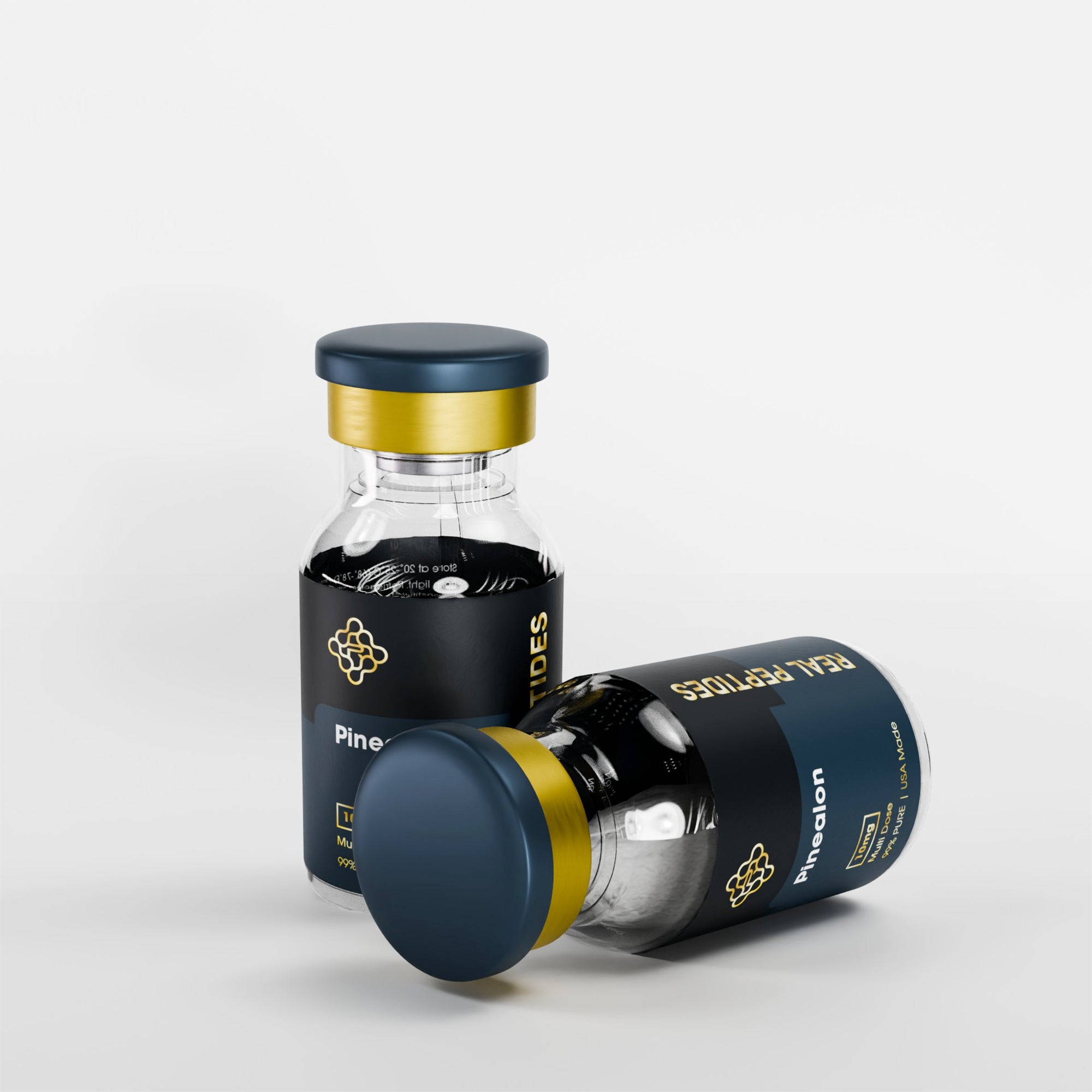
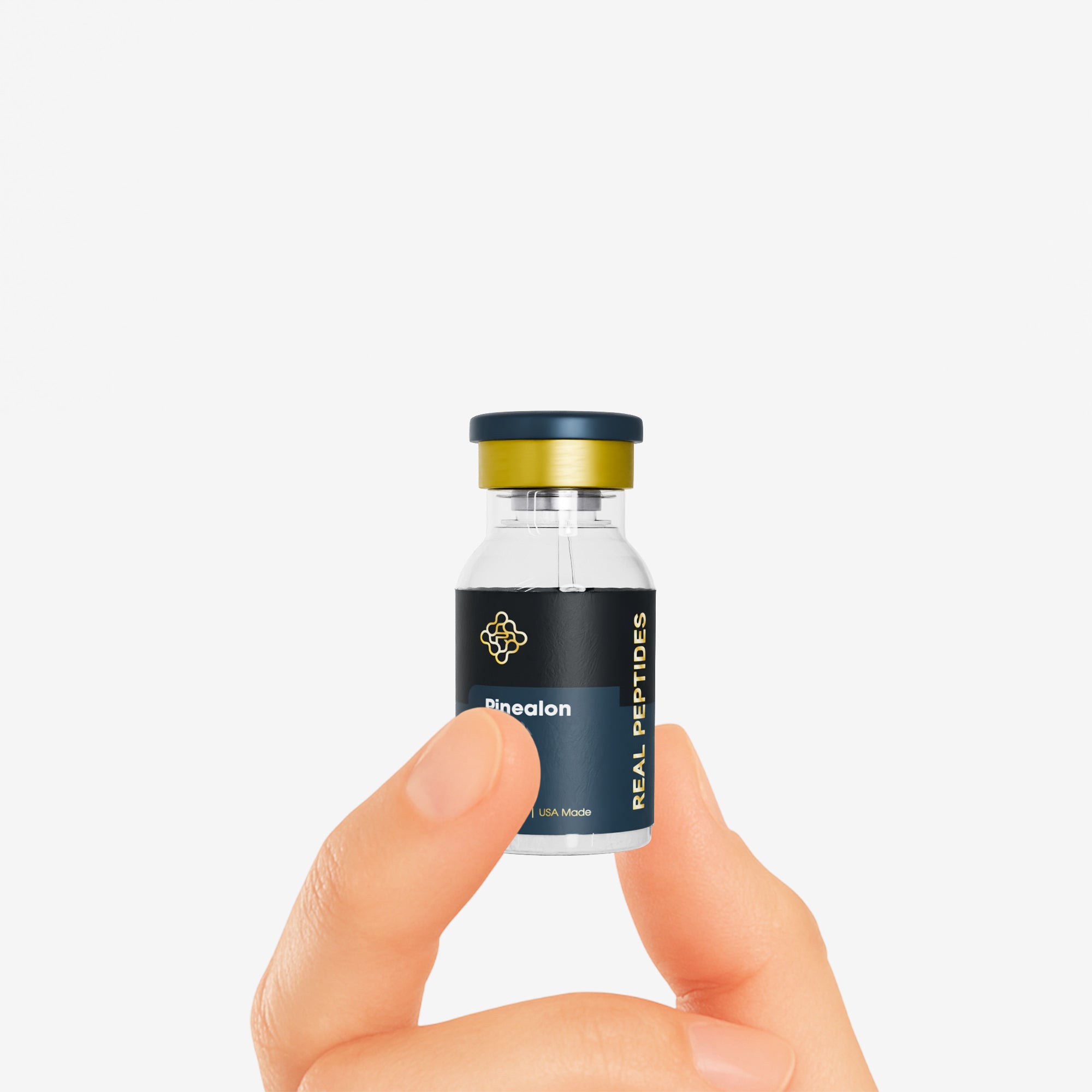
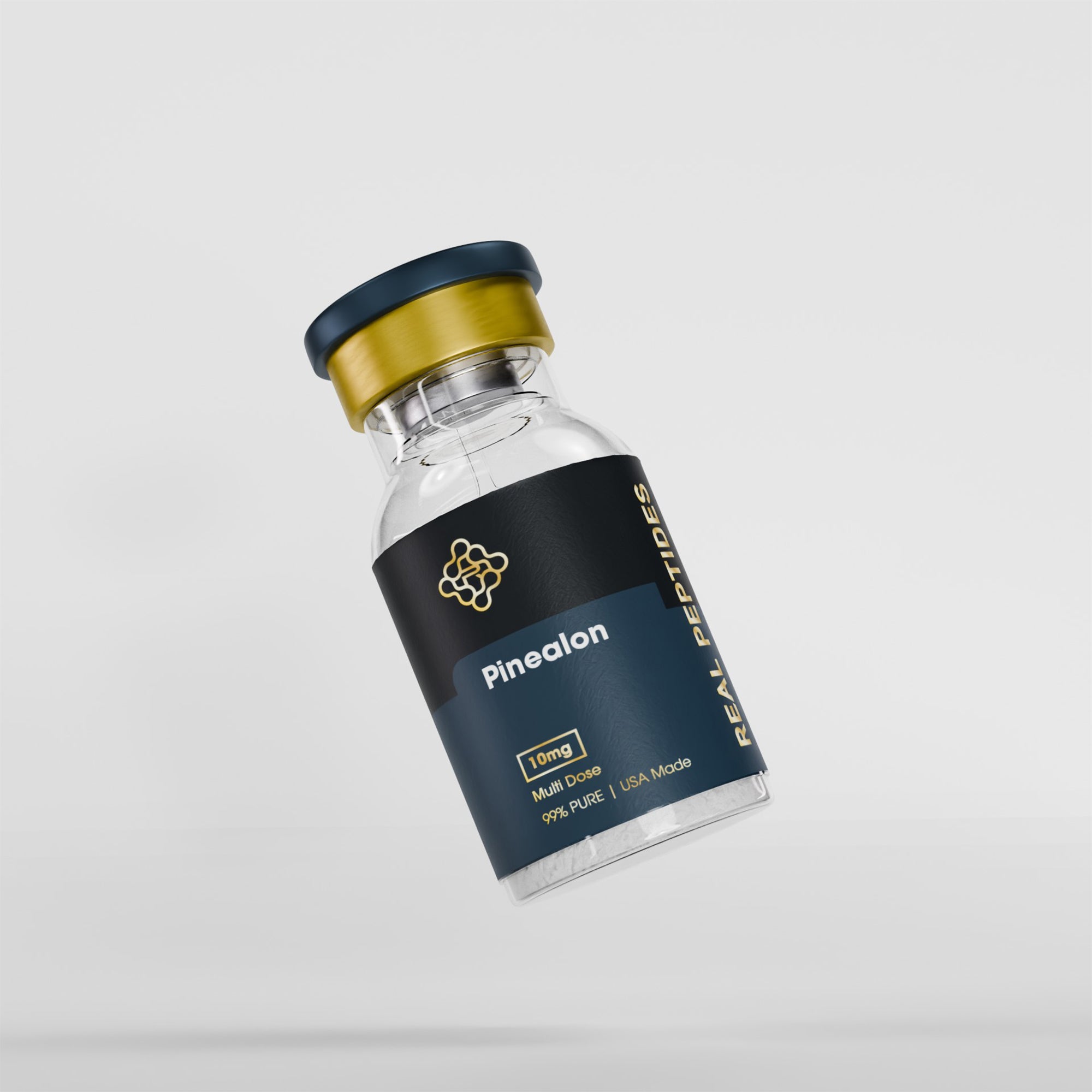
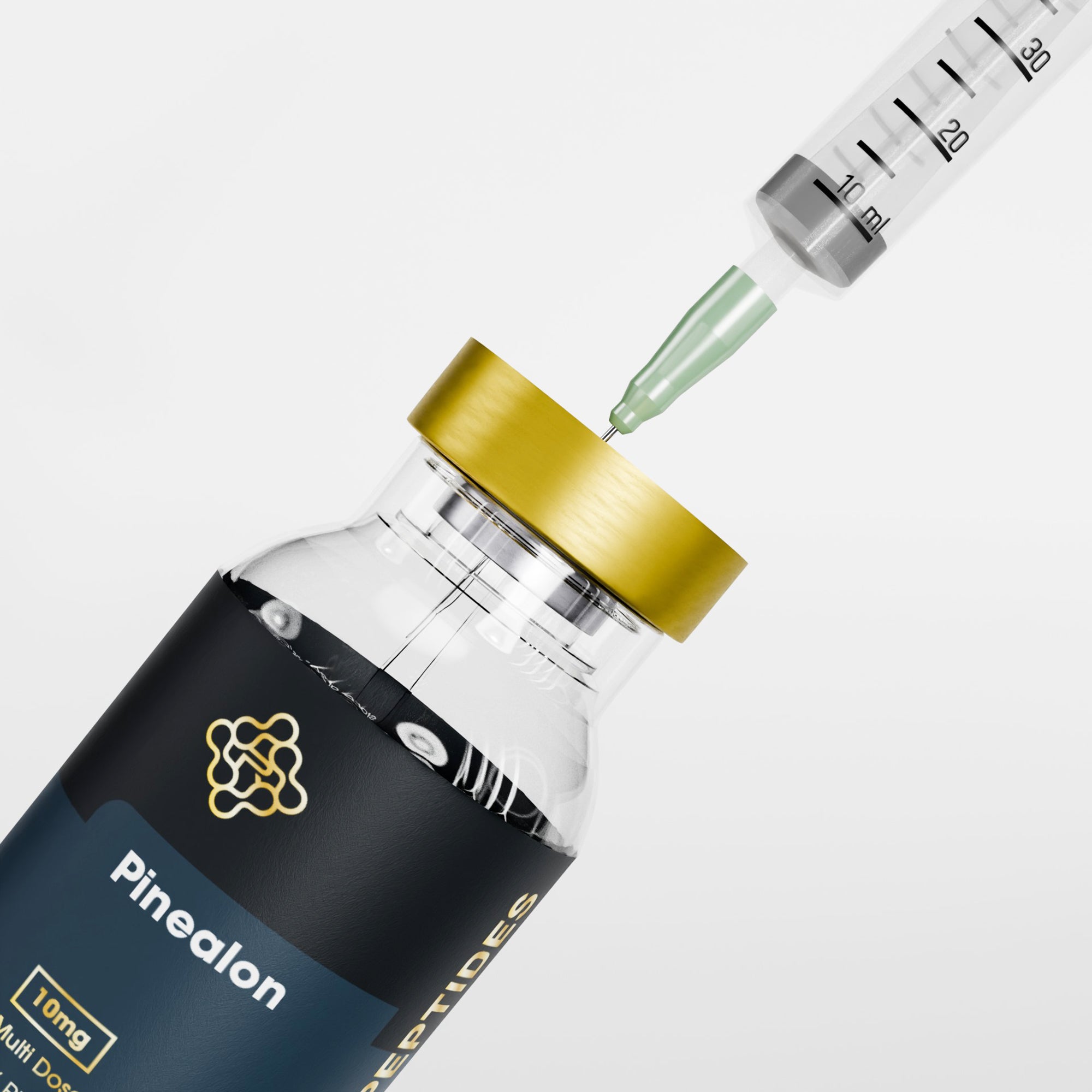
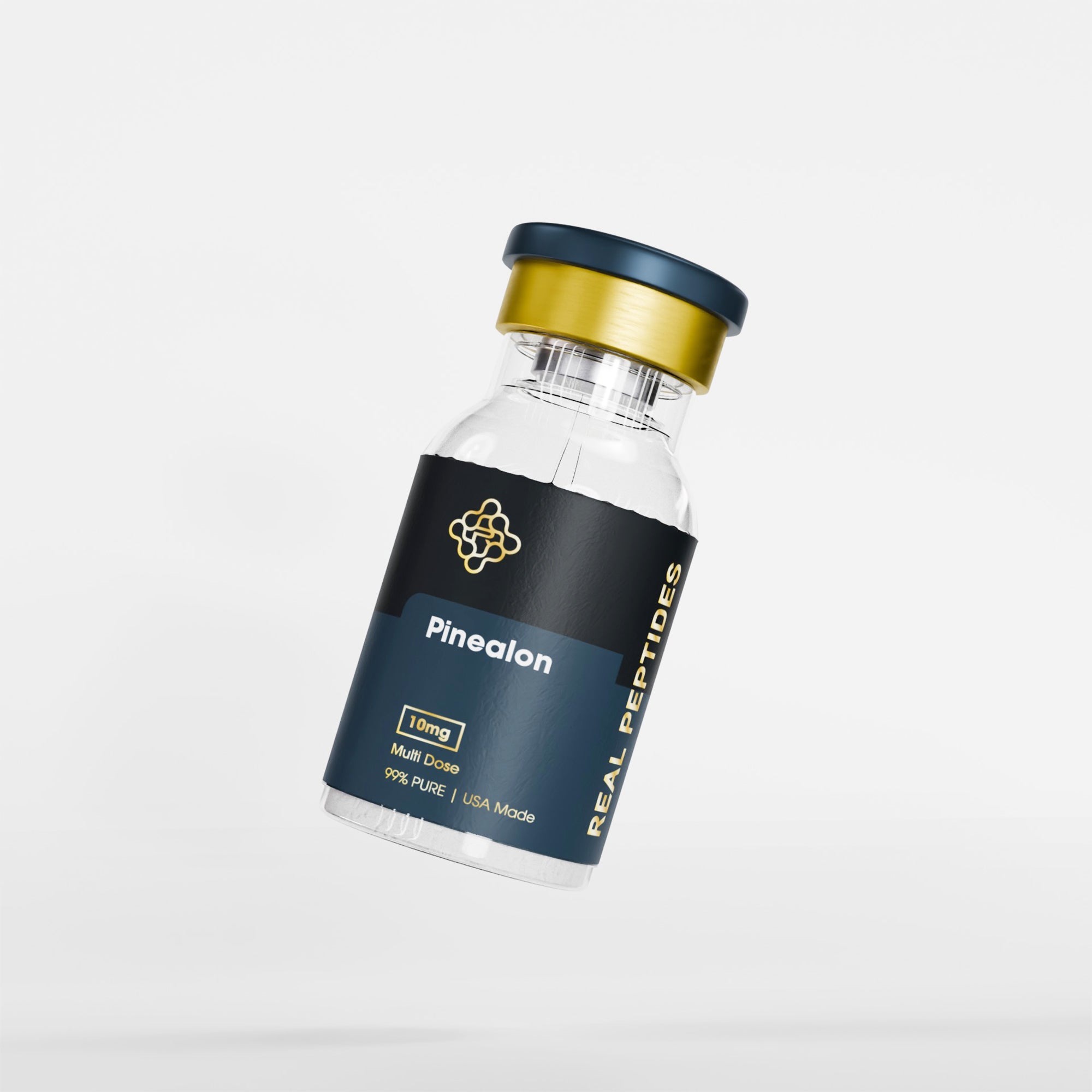
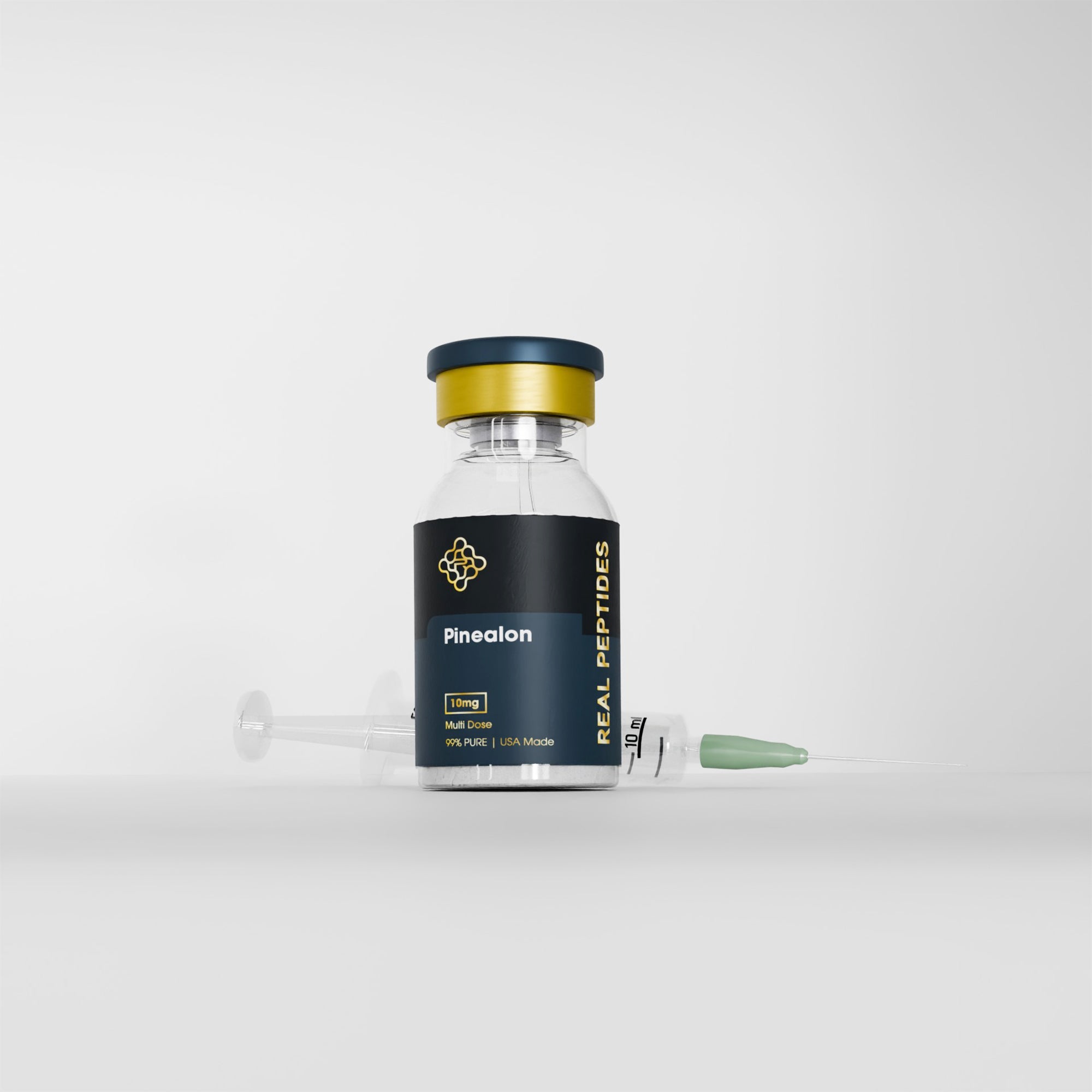
Out of stock
$50.00
99% Pure | USA Made | Multi DosePinealon is a small, brain-derived peptide that’s become a go-to for labs studying neuroprotection, mitochondrial health, and cognitive-aging pathways. Each 10 mg vial delivers a ready-to-use peptide that helps preserve neuronal function under stress, supports energy-metabolism assays, and models age-related decline—no extra factors needed. Made in the USA, HPLC-verified at ≥ 99% purity, and endotoxin-screened (< 0.1 EU/mg), Pinealon brings consistent, easy-to-interpret results to your neuroscience protocols.

Peptides are not ready to use. Must purchase BAC water for reconstitution.
KEY HIGHLIGHTS
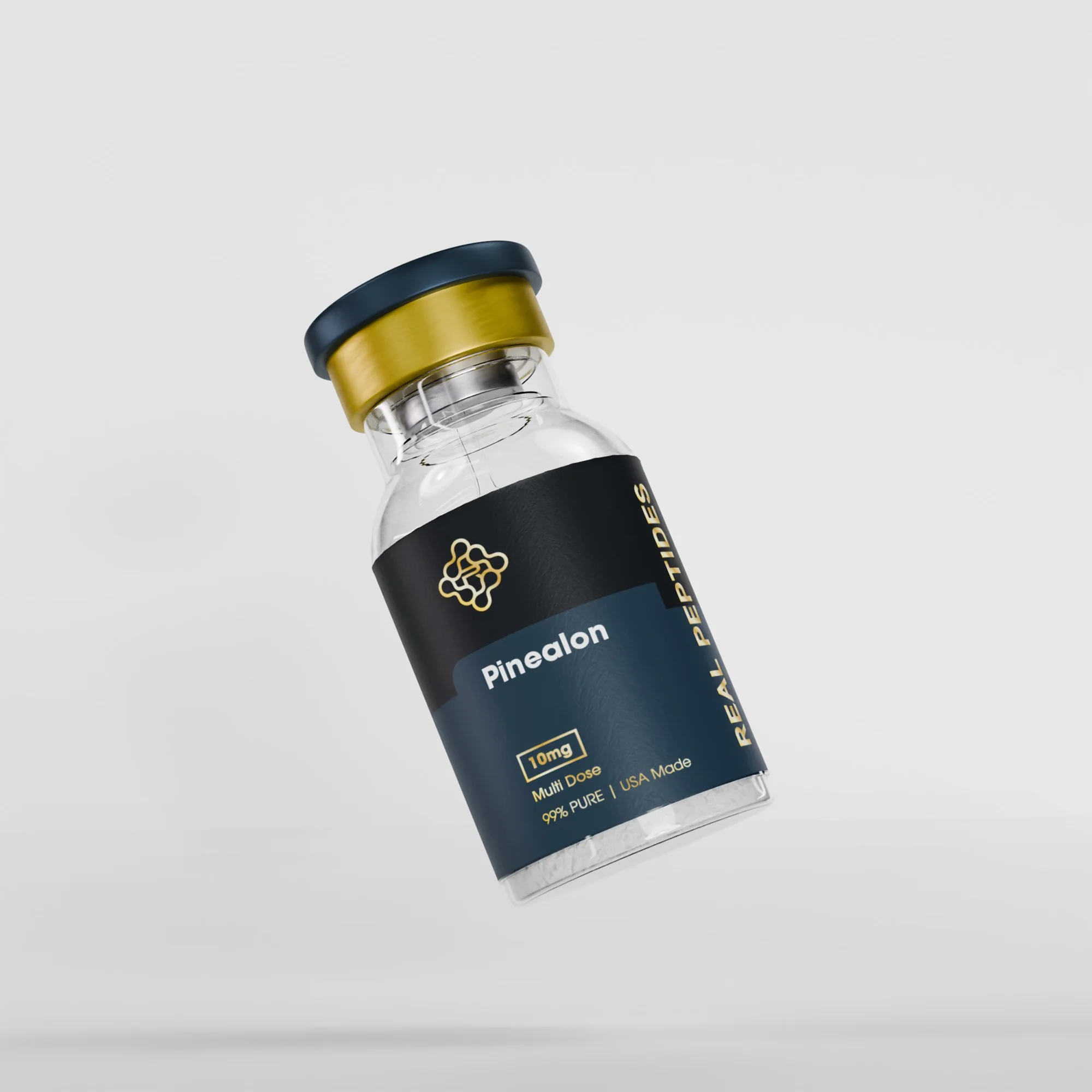
Pinealon is a tripeptide derived from the pineal gland’s protein fragments. In research, it’s used to explore neuronal survival, mitochondrial health, and cognitive-aging mechanisms under controlled laboratory conditions.

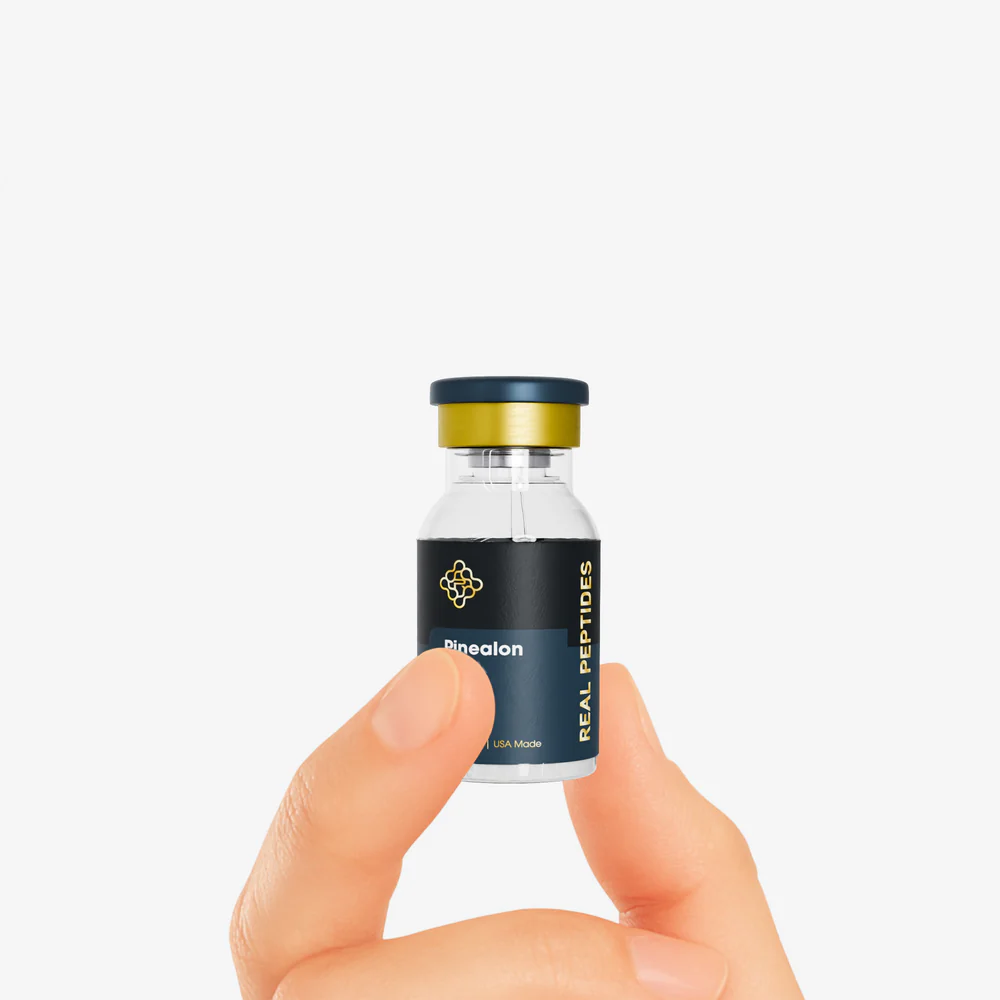
Choose Pinealon when you need a straightforward, powerful peptide to model brain-aging and neuroprotection. Its proven ability to shield neurons from stress and boost mitochondrial function makes it ideal for labs investigating dementia, oxidative damage, and age-related cognitive decline. Manufactured under ISO-certified conditions and verified to ≥ 99% purity, Pinealon delivers reproducible, high-quality data every time.
Unlike generic small peptides, Pinealon combines neuroprotective and mitochondrial-support actions in one molecule. Its tripeptide structure allows rapid cell uptake, delivering benefits without off-target effects. That makes Pinealon uniquely suited for high-throughput and long-term studies of brain health and aging.
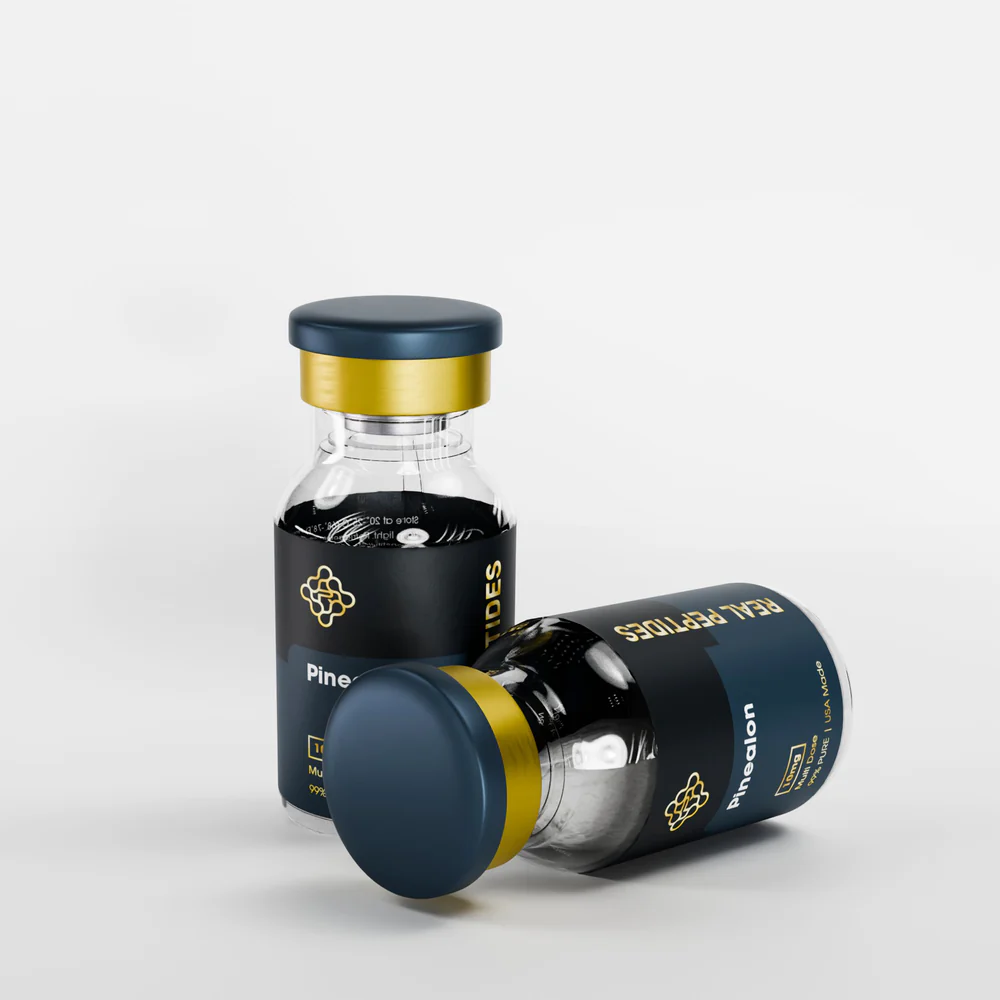
Commonly 1–10 µM, adjusted per neuron or glial cell assay.
Store powder at –20 °C; use reconstituted solution within 7 days at 2–8 °C.
No—strictly for research use only, not for therapeutic or veterinary applications.
Don't hestitate to contact us

End of Content.